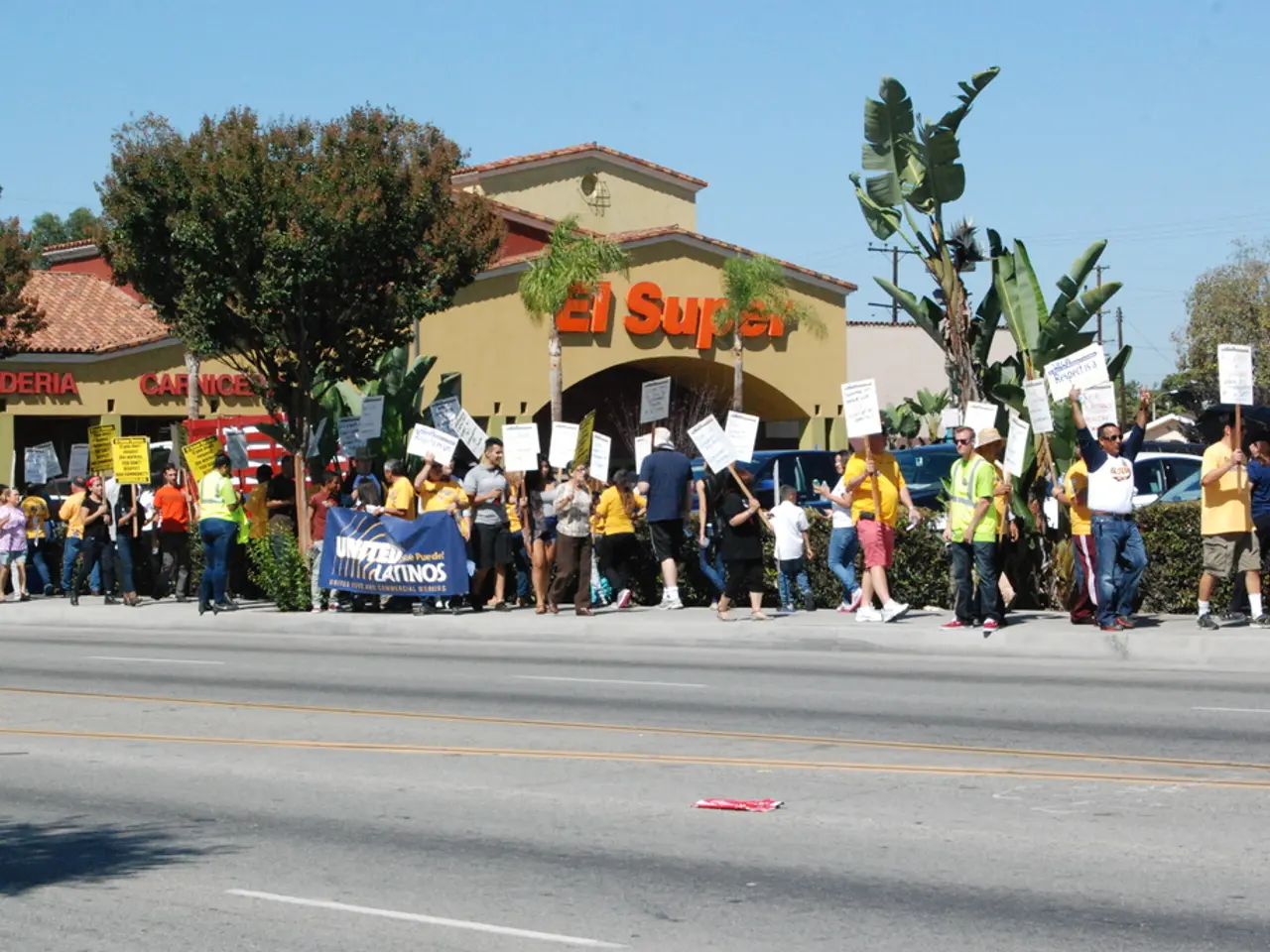Assembling a Top-Notch Political Campaign Team from Ground Up
In the world of politics, a well-oiled marketing team is crucial for campaign success. Here's a breakdown of the key roles, qualifications, and best practices for assembling an effective political marketing team.
### Key Roles and Their Qualifications
A political marketing team consists of several key roles, each with specific responsibilities and qualifications. The Campaign Manager, for instance, develops and implements the overall campaign strategy, manages daily operations, staff, volunteers, events, and fundraising. Key qualities for this role include strong leadership, organizational skills, data analysis, and previous campaign experience.
The Communications/Media Manager, on the other hand, manages candidate messaging, press relations, and public communication strategies. Strong writing and speaking skills, media savvy, and experience with digital and traditional media channels are essential for this role.
Field Organizers coordinate ground operations such as canvassing, phone banking, voter registration, and volunteer management. Organized, people-oriented, strong interpersonal and logistical skills are vital for this role.
Policy & Research Specialists analyse policy issues, develop campaign policy platforms, and assist in strategy formulation. Expertise in relevant policy areas, research ability, strategic thinking, and collaboration skills are important for this role.
The Fundraising Manager oversees donor relations, fundraising events, and budget targets. Relationship-building skills, experience raising funds, detail-oriented, persuasive communication are key competencies for this role.
The Digital Marketing Specialist manages social media campaigns, digital advertising, and online engagement strategies. Digital expertise, creativity, data analysis, and adaptability are essential for this role.
Coalition & Alliance Builders build partnerships with community groups, labor unions, and stakeholders; mobilizing broader support. Strong coalition-building experience, facilitation skills, cultural and political knowledge are key for this role.
### Essential Qualifications and Traits for Team Members
All team members should be organized, engaged communicators, adaptable, strategic, experienced, and committed. These qualities ensure efficient management of daily operations, strong relationships with the candidate, media, donors, and the public, and the ability to respond to changing circumstances and adjust campaign tactics dynamically.
### Best Practices for Hiring
To find the right candidates, define clear roles and responsibilities upfront. Look for candidates who demonstrate the seven key characteristics: organized, engaged communicators, adaptable, strategic thinkers, experienced, committed, and passionate about the campaign's mission and political context.
Prioritize cultural fit and alignment with campaign values and objectives. Use a combination of interviews, references, and practical assessments to verify candidates’ skill sets and problem-solving abilities. Consider diversity to ensure the team resonates with the electorate and can build broad coalitions.
### Team Management & Operation Best Practices
The campaign manager should steer the overall strategy and daily execution, ensuring strong coordination among team members. Maintain clear communication channels and reporting systems to keep all members informed and accountable. Encourage a culture of collaboration and mutual support, recognizing that political campaigns are fast-paced and stressful environments.
Set measurable short and long-term goals, using data to track progress and adapt tactics regularly. Organize regular training and development opportunities to build skills within the team. Plan logistics and resource allocation carefully, especially for field operations and events.
In conclusion, building and managing a political marketing team with defined roles, the right qualifications, and strong organizational practices is foundational to campaign success. This approach supports mobilization, voter engagement, and effective messaging essential for winning elections.
- The Digital Marketing Specialist, working within a political marketing team, manages social media tactics, email campaigns, and online branding to engage supporters and deliver campaign messages.
- Effective political marketing teams also include Service Providers who offer consulting on campaign strategy, branding, and general-news analysis to help shape the candidate's narrative and respond to current events.
- Bloggers can serve as valuable additions to political marketing teams by generating content that articulates the candidate's views and promoting engagement on crucial policy issues.
- Political marketing teams should leverage resources such asauthentic partnerships and alliances with social media influencers, community leaders, and news outlets to expand their reach and amplify their message.
- In crowded political arenas, a political marketing team's success hinges on its ability to use resources wisely and adapt its strategies in response to the ever-changing nature of general-news, public sentiment, and campaign dynamics.
- With an emphasis on collaboration, measurable goals, and data-driven decision making, political marketing teams can build powerful coalitions, drive meaningful voter engagement, and ultimately shape the course of political elections.








